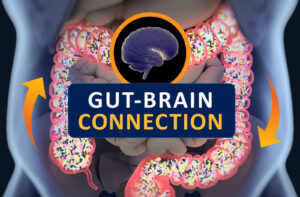These days, I find mindfulness increasingly difficult to achieve. I’m not a tech basher in any way, but sometimes it’s a good idea to take a break from the screen.
Are you someone who eats their meals at your desk while you work? Surf your phone? Do a crossword? Watch Netflix/Hulu/Prime/Whatever-You-Stream?
Do you do this and then suddenly look up and notice you’ve scarfed all your food down, even if you weren’t that hungry? Do you feel overstuffed because of it?
If you’ve caught yourself doing any of these things, you might want to learn about mindfulness and how it applies to food. When you decide to eat mindfully, you can help with bloating, weight loss, “food comas,” any many other dietary issues.
We often eat with our mind elsewhere. Much like other aspects of our lives, we don’t seem to take enough time for ourselves, in this case, enough time to eat well. The ability to take time for ourselves to be mindful is a learned skill.
Western cultures have a warped relationship with food. It is harder and harder to eat a truly nutritious meal. Juice seems healthy, but is full of sugar; junk food is incredibly cheap, where as healthy and fresh food can be expensive; fast food is much easier to come by than decent fresh food; servings are huge, much more than they need to be.
The average calorie consumption per person per day in the United States is 3800 calories, about 1800 over the recommended daily amount. Canada is no better, clocking in around 3500 per person per day.
Those who practise mindfulness have the ability to recognize feelings or sensations, and just be able to acknowledge them for what they are. They aren’t a part of your being, and they can change.
Mindfulness can give you the ability to choose food with more clarity. You might come home from a long day at work and the first thing you want is that glass of wine, a bag of chips, or cookies. But mindfulness can help you give you the choice to make a healthier snack for yourself, or even a meal.
A restrictive diet is a fast way to lose weight, but it will deliver unsustainable results. Mindfully eating can also help you make healthy, sustainable choices when it comes to your health. This could be the ability to plan ahead healthy meals instead of being stuck with fast food on the way home from work.
Author of the bestselling book Food Rules, Michael Pollan says “Eat food, not too much, mostly plants.” This is excellent advice that many people of the Western world don’t seem to follow.
There is an excellent saying from Japan which embodies this message: hara hachi bun me. This roughly translates to “eat until you are 80 percent full.” This is a common practise on the island of Okinawa. Okinawa has the most people in the world who live to be over 100 years old! And they say that hara hachi bun me is the secret to their longevity.
Most eating habits and patterns come from social norms: bacon and eggs with breakfast, burger for lunch, pasta for dinner, etc. Changing eating habits seem difficult, but even little changes can make a huge impact:
Bringing awareness to your breath can make a big difference. When you slow down and think, you come up with some actualities about your hunger and your food. You can ask yourself questions around food: am I actually hungry? How hungry am I? What does my body need? Am I hungry or stressed/sad/bored? This can also help you identify triggers on what makes you want to eat and why. If you are actually hungry, eat! But if you are not hungry and want to eat, figure out why.
Consider A Gut Health Supplement
The gut microbiome is a key component for digestion, your immunity and overall health. A healthy gut can mean better digestion and improved bodily function such as fat metabolism. Consider AEON fulvic acid for it’s ability to more efficiently burn off calories. Fulvic and humic acid’s chelation ability helps increase the permeability of your cells wall, thus increasing nutrient flow into and out of your cells. (It also has a great side benefit that it flushes toxins). This reaction will help reduce overeating by providing an increased number nutrients to the cell walls in order for them to function properly; if they are not getting enough from their diet then you may be inclined to over eat – often as a result.
Choice in food can be the difference between being full for 20 minutes or full for 2 hours. What would be satisfying to you? Savoury or sweet? Ice cream? Apple with peanut butter? Ask these questions to yourself when picking food, they can help keep you comfortable and sated.
You may be tempted to scarf down that bowl of pasta salad as soon as the dish hits the table, but take the time to eat slowly and savour the meal. This can help you be satisfied with the food in front of you.
Eat with no distractions either; no phone, no laptop, no newspaper, nada. Give yourself permission to enjoy the food you have, and you may be surprised about how you feel when you eat.
Start slow with these practises. It might be daunting to try all of them for every meal, but start small. Instead of reaching for the soda, grab a glass of water. Bag of chips, or trail mix? Once you feel that you have mastered the art of snacking mindfully, implement it into your mealtimes.
Accept yourself during this process. It might be discouraging to try it and fail. But don’t give up on yourself! Explore your food and yourself during this process. You may be surprised about what you find.
Sources:



